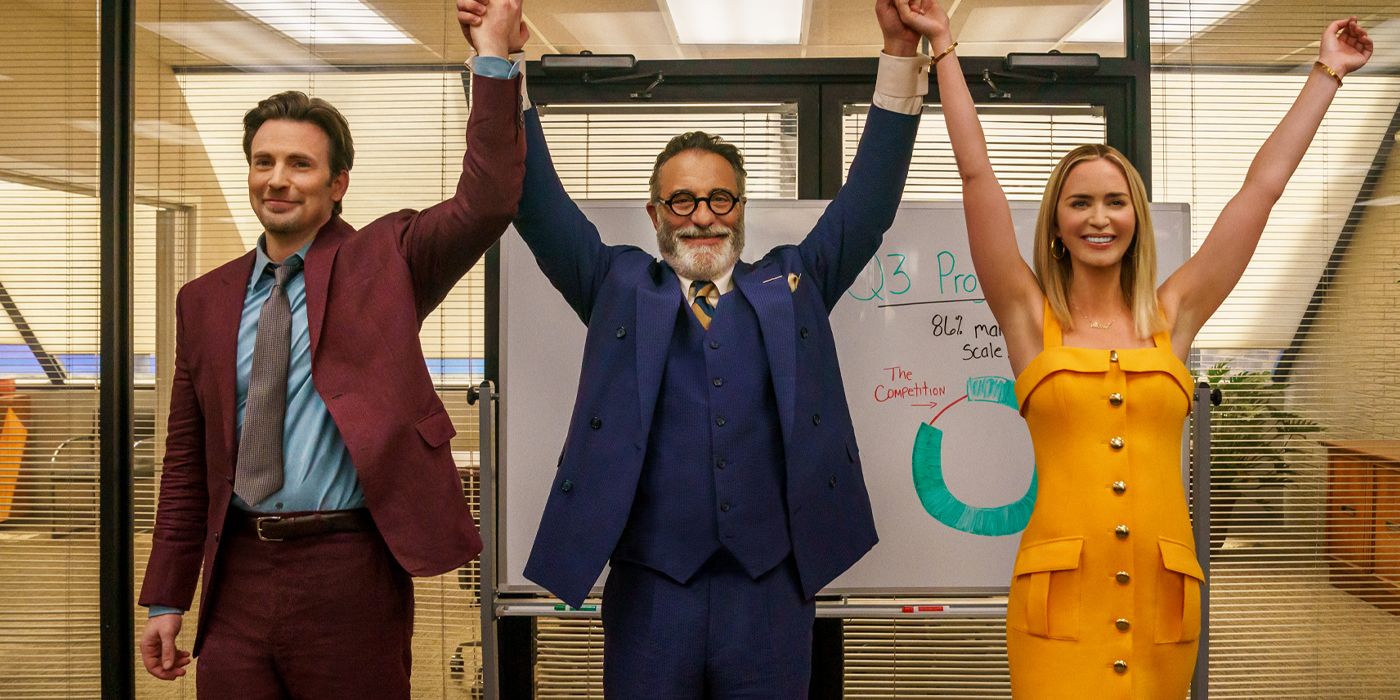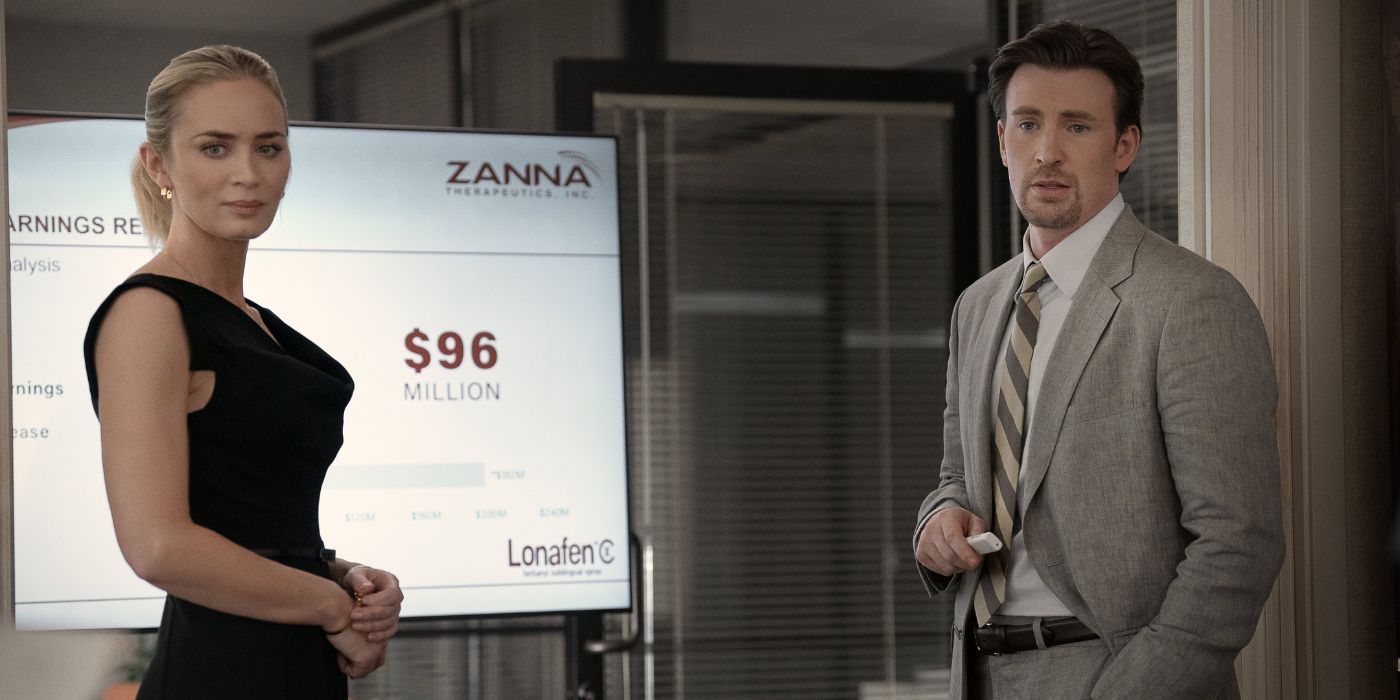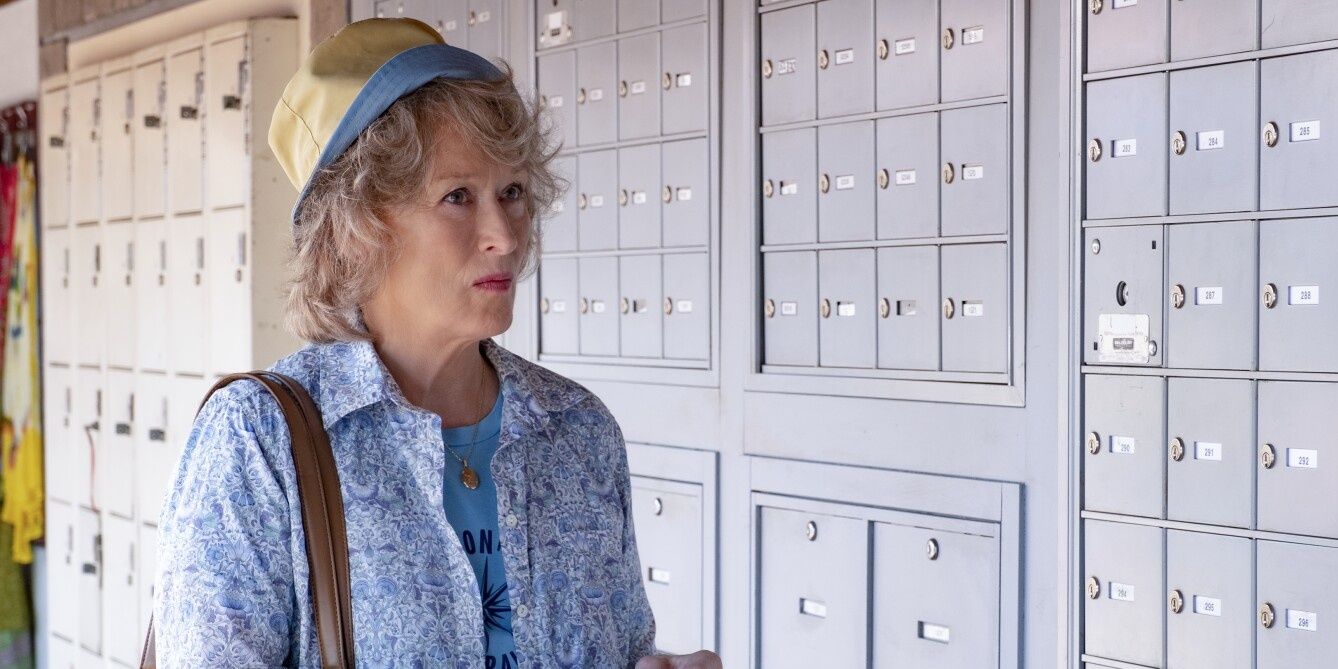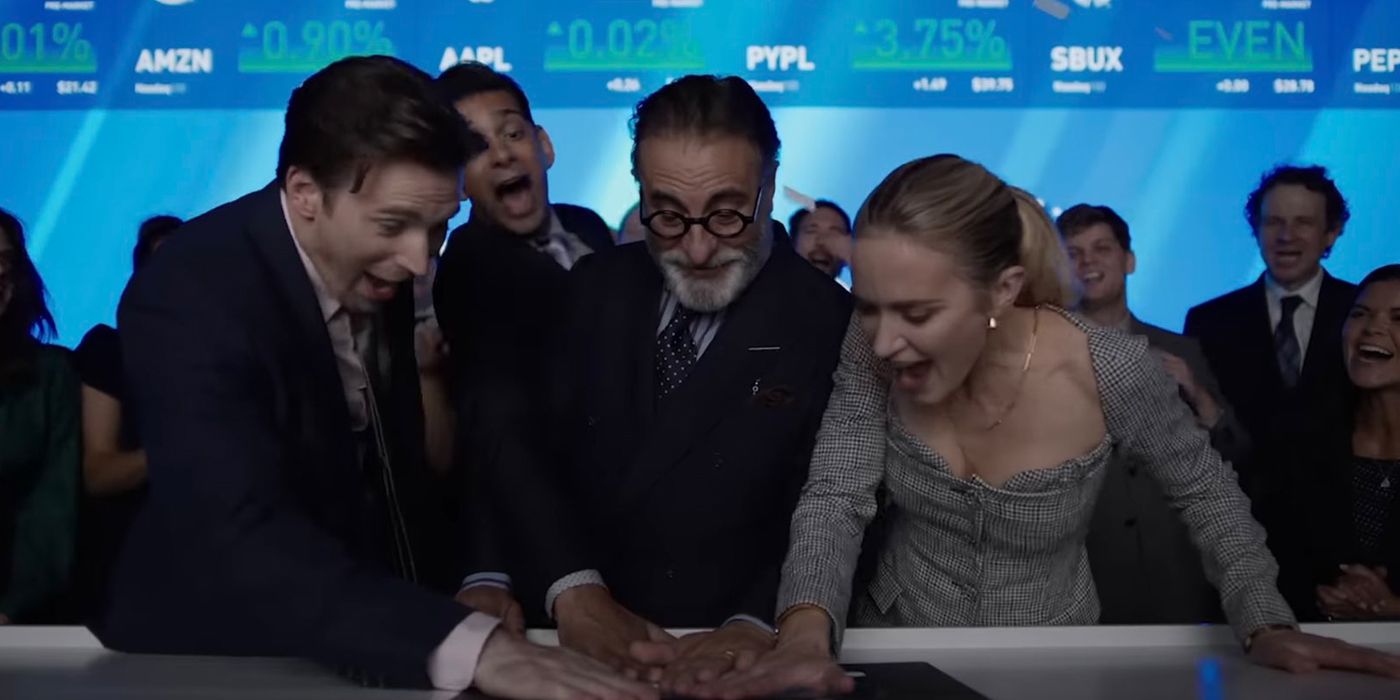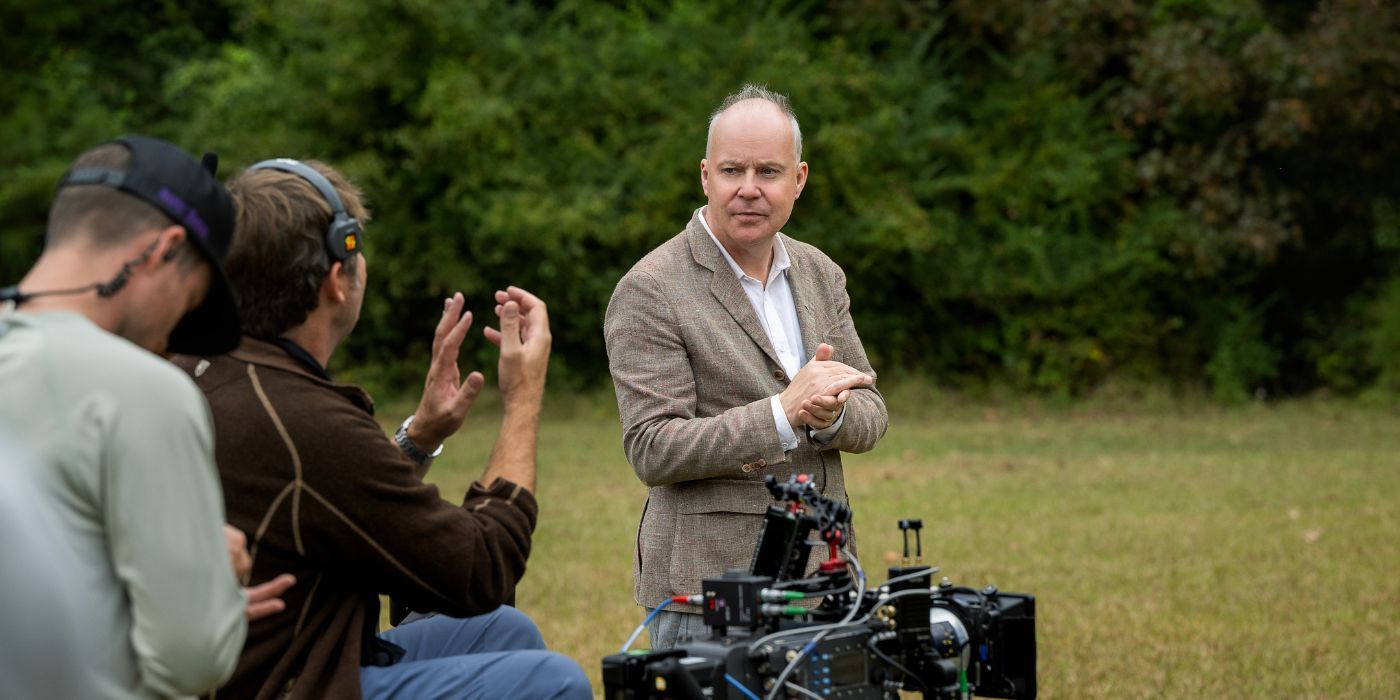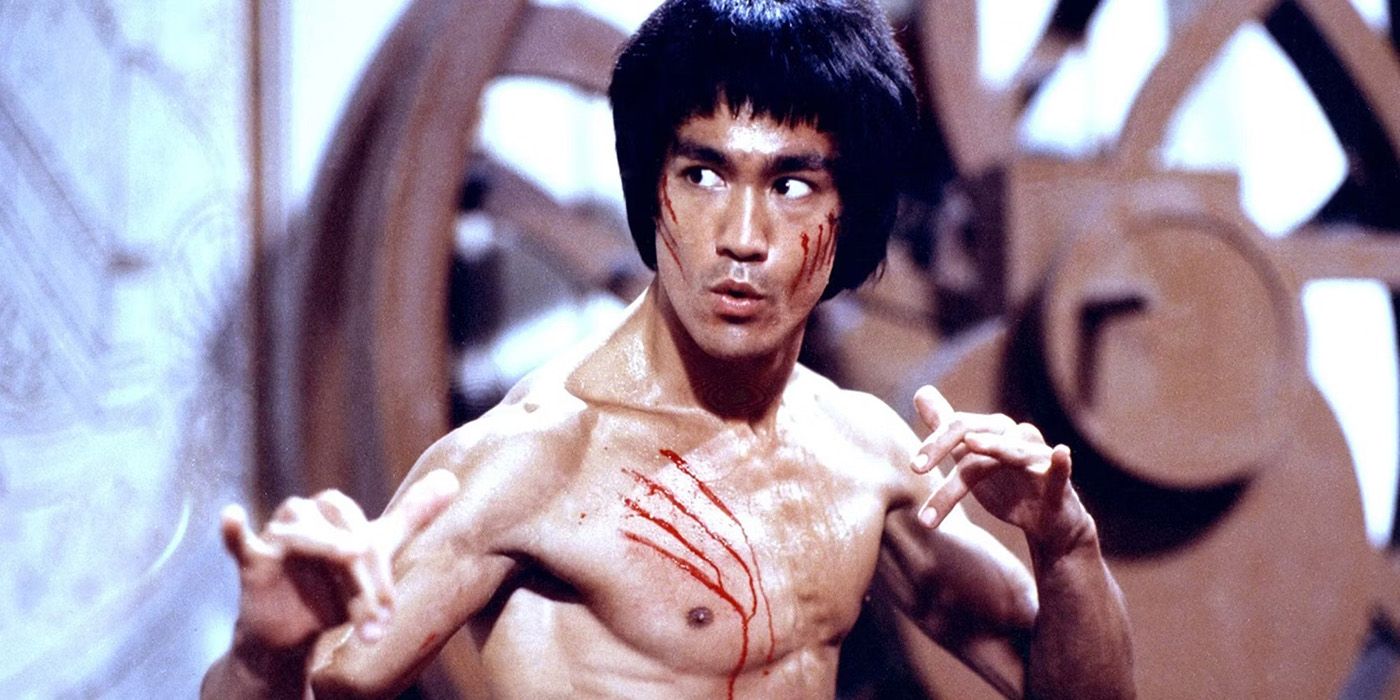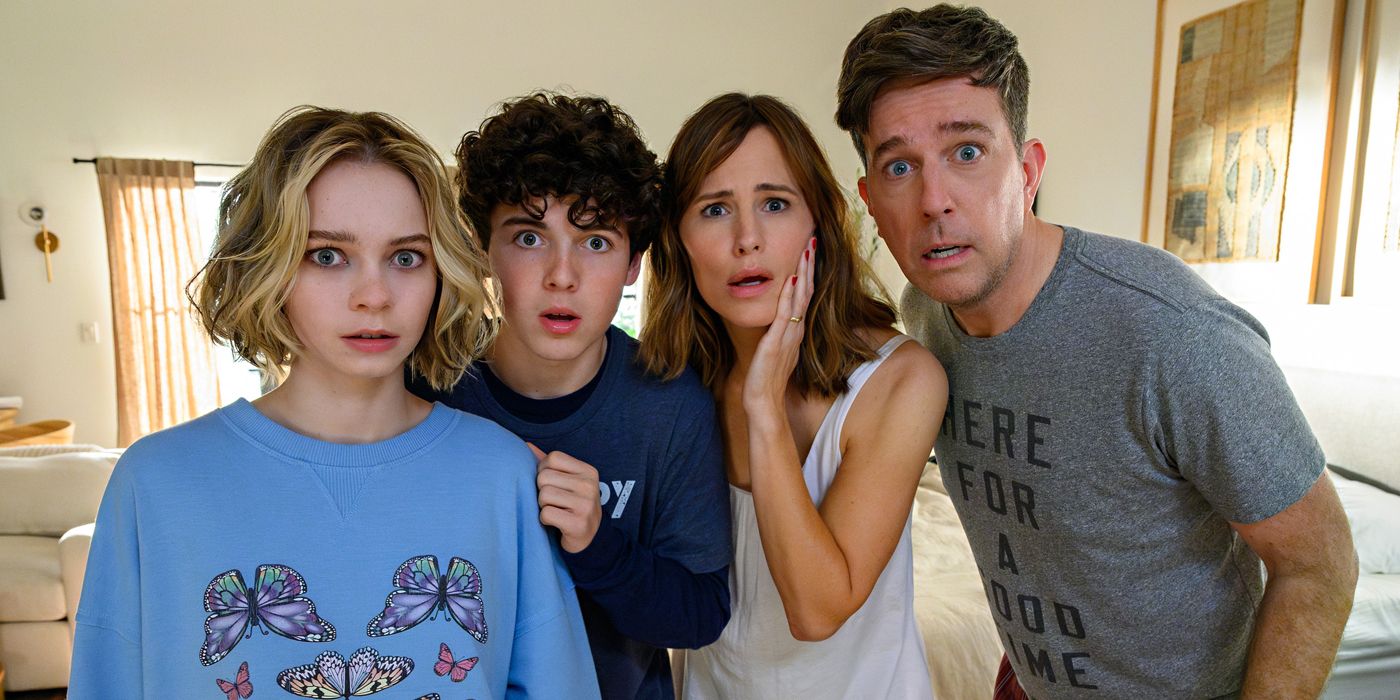The Big Picture
Producer Lawrence Grey has had his hand in some big projects with genres spanning across the board, from David Sandberg’s (Shazam! Fury of the Gods) hit 2016 horror Lights Out to the Meryl Streep and Tommy Lee-led rom-com Hope Springs. For one of his next upcoming features, Grey teamed up with director David Yates (Harry Potter and the Order of the Phoenix) and Netflix for crime drama Pain Hustlers, with yet another ensemble cast, and he recently spoke with Collider’s Steve Weintraub about what it was that drew him to this project.
Pain Hustlers, as described by Grey, is “this really unique intersection between our healthcare industry and capitalism and how our healthcare industry has been corrupted.” Adapted from the Evan Hughes novel of the same name, Emily Blunt stars as Liza Drake, a single mother who’s living out of her mother’s (Catherine O’Hara) garage. This twisted, rags-to-riches story takes off when Pete Brenner (Chris Evans), a client at the strip club Liza works at, offers her a position for his floundering company, Zanna Pharmaceuticals. It turns out Liza has excellent people skills, and she’s able to push a new, dangerous cancer drug to doctors, unaware at first of the deadly ramifications. By the time Liza’s life is looking up financially, it’s too late to take it all back.
In his interview, Grey talks about what it was about this particular opioid scandal that struck a chord, working with Blunt and Evans, corruption within the healthcare system, and how he chooses the projects he wants to produce. He also shares tons of details on the Bruce Lee biopic that has Ang Lee (Brokeback Mountain) tapped to direct, as well as his next family-friendly feature, Family Switch, and the idea Jennifer Garner suggested that gives the classic trope a whole new feel. For all of this and more, you can read the full transcript below.
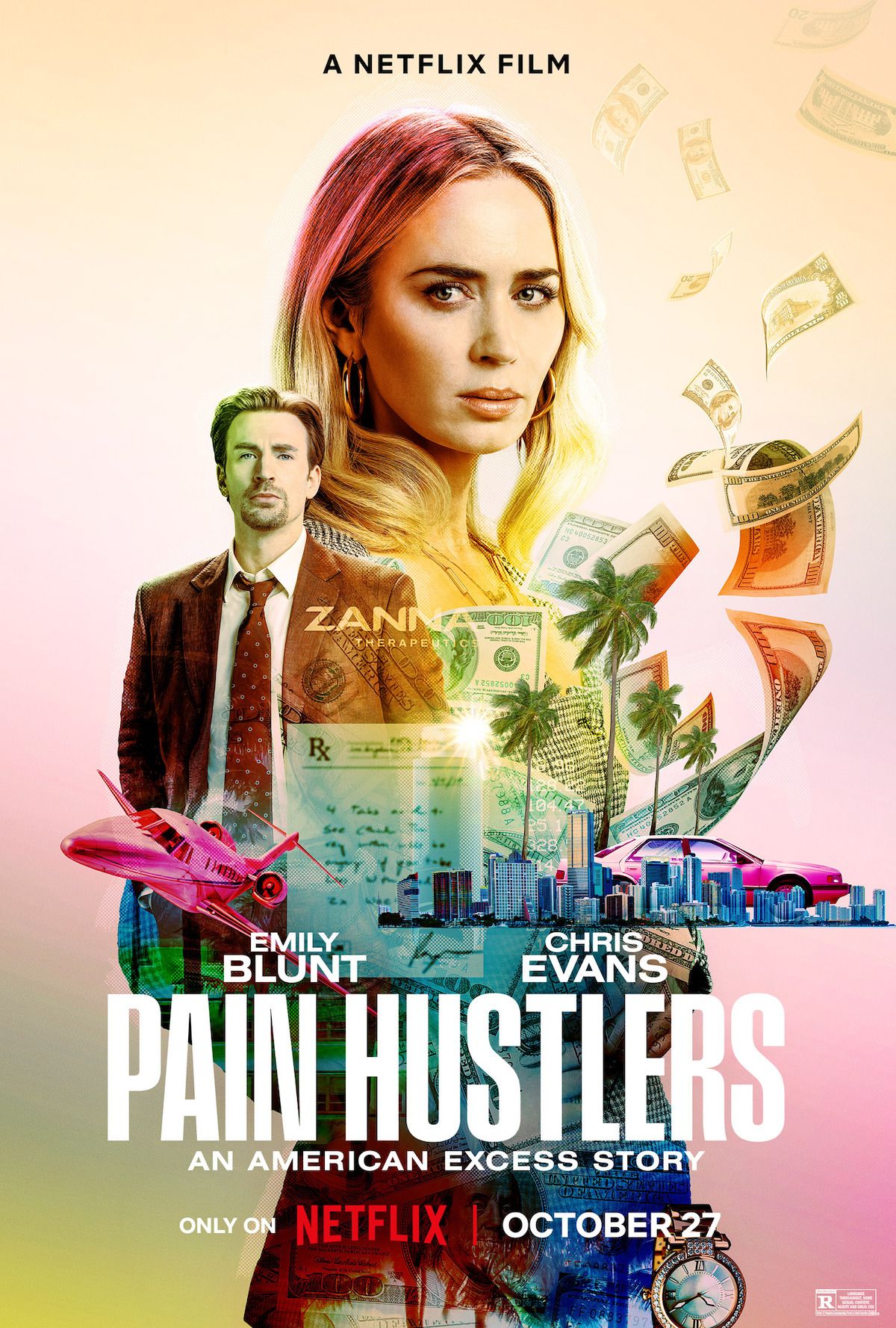
After losing her job, a woman who’s struggling to raise her daughter takes a job out of desperation. She begins work at a failing pharmaceutical startup, but what she doesn’t anticipate is the dangerous racketeering scheme she’s suddenly entered.
Release Date October 27, 2023
Director David Yates
Cast Chris Evans, Emily Blunt, Chloe Coleman, Catherine O’Hara
Runtime 2 Hours and 2 Minutes
Main Genre Drama
Genres Drama, Crime
Where to watch Netflix
COLLIDER: What do you think would surprise people to learn outside of the industry about being a producer in Hollywood?
LAWRENCE GREY: Oh, what a great question. I think most people would probably think the producer is the guy who gets the money or the producer’s the guy who’s partnered with the director or the actor. I’ve always seen the job of a producer as somewhat like a futurist. You have to be able to be there predicting cultural trends, you have to be there being able to predict what kind of material is gonna connect with artists, how you’re gonna be able to shape culture through your work. So, it probably is much more of a crystal ball job than most people would think.
There are a lot of producers in Hollywood, and they’re all looking for the next great script. What is the secret to locating material that everyone is looking for? How do you find the gold nugget when everyone is looking for the gold?
GREY: So I’m a little bit different in that I’m much more in the creation of the material than I am a producer who happens to find that script. Most of the movies I’ve been involved with have started from an interest in an area, an interest in a subject matter, and then building those things at the ground level. So one of my fortunate skills or dubious honors is that I have my hands deep in the soil early on and work very, very closely with the writers and the directors to create that work. Sometimes, it just starts with the sparkle of an idea.
You’ve produced a number of movies; which of the films you’ve been involved with do you think changed the most in the editing room in ways you didn’t expect?
GREY: What a great question. By virtue of its structure, probably a film I made called The Laundromat with Steven Soderbergh and Meryl Streep. The movie has a sort of nature to it that it’s interconnected stories, and we just found the tone of certain parts of the movie were working incredibly well, in others it wasn’t, and Steven is brilliantly merciless at cutting things that are not at that level of quality. And so the movie transformed in a brilliant and magical and surprising way, but it was very different than the script we went in with.
Is that one of those things where you had like an hour of footage on the cutting room floor?
GREY: [Laughs] I couldn’t tell you exactly how long, but there certainly was a significant amount, yeah.
Jumping into why I get to talk to you, what was it about this material that said, “I have to make this?”
GREY: I was interested in doing something in the space of opioids. The story was captivating me from the news, but everything that I’d come across either felt like a sort of conventional version of the events or something that was probably difficult to get an audience to connect with. Then I came across Evans’ article, and it was brilliantly reported, and it had two things that really surprised me. The first was that it was the first time there’d ever been felony convictions, jail convictions, for pharma executives, like pharma executives going to jail. Every story I’d come across was another slap on the wrist and a fine, and this felt like, “Wow, there’s a real sea change maybe happening.” And then the second was that it wasn’t actually an opioid story. Most of what I’d seen was pharma companies trying to get people addicted before they knew the real consequences of opioids and fentanyl. This story was about today, how we all widely know the consequences of opioids, and yet doctors are being prescribed to write this medication. So it’s this really unique intersection between our healthcare industry and capitalism and how our healthcare industry has been corrupted. And I guess I’ll throw in a third, which was just the extent to which when you saw the court transcripts, and you saw the chat rooms, just how completely these people don’t give a fuck. They are just living this body-excessive lifestyle. They are completely oblivious to the moral line that they’ve way stepped over. And so, that felt like a fascinating way into a complicated thematic story.
I look at something like Mad Men and Matt Weiner doing a series about the rise of feminism in America. He didn’t tell it through the women’s liberation movement, he told it through debaucherous Madison Avenue executives. And so sometimes looking at the marketplace in a sort of capitalist lens is the most interesting way to tell a story about complicated subject matter.
I’m a big fan of Chris Evans and Emily Blunt, as are a lot of other people. Is getting the two of them in a movie together like entering a cheat code in a video game?
GREY: It’s like entering 40 of them. This movie has been just—I don’t have many of these—the bucket list, lottery ticket winner, one after the other. It started with David, and having admired not only the work he’d done in Harry Potter but both State of Play and Sex Traffic were two stories brilliantly skewering criminal conspiracies and presenting them in an incredibly authentic, vivid way. Then, finding out David’s available. He’s not the steward of just the biggest franchise in human history, he’s actually down to tell a complicated original story.
And from there, I mean, Emily was our absolute first choice. The role required somebody who could really get all the complexity of this woman’s journey, and Emily was instantly so fierce about the challenge. Women are so often portrayed as the good mother and the good sister in a film, and then she wanted to play something that was much more gamy and morally complex, and she really is the barometer through the movie of that. Literally, I remember on our very first scout, we met Emily. We were in Atlanta, and we said, “Who would be your first choice to play this role?” And everyone in the room said Chris Evans. So, it’s just been that kind of very fortunate producorial journey.
This film talks about “What are you willing to do for money?” And the thing is, a lot of people, if they were told, “You can make a million dollars this year, we need you to sell stuff that’s gonna probably kill people, but you’ll make a million dollars, would you do it?” A lot of people are gonna say yes. It’s very fucked up.
GREY: It’s deeply fucked up. And what’s really kind of institutional about the corruption is that you don’t know all that information right away, you are seduced into it. We looked into a lot of real pharma companies and studied them closely, and the deftness of the corruption is only discovered as they get deeper into the world. So, at the beginning, you think, “Well, I’m helping people who are terminally ill get pain relief, and if it’s a great product, what’s the matter with that?” And there is some truth to that: that if you are dying of cancer and you have limited time, pain relief is an incredible gift to you. But then, as you discover that these companies are prescribing it to people with headaches, that these companies are committing massive insurance fraud on a wide, wide scale, convincing insurance companies that these people do have things like cancer, that they need it, it actually is sort of hard to fathom that they could not care.
The biggest thing is, I can understand if you’re making that much money, and it’s like life-changing money for your family, I can understand the corruption that eats your soul because I think it would happen to a lot of people.
GREY: That’s absolutely right. You know, the first screening of the film, we were shocked at the number one thing the audience took away was the relatability of this woman’s journey. It’s a very specific world, and it’s a very specific story, and yet everyone felt parts of that in their own personal experience of, “What are the moral lines you would cross to support your family, to help a family member with an illness?” And not just that, but when you come from a low socioeconomic strata, what do you do for your life to matter, to be able to get an opportunity to live up to the potential that’s inside of you? So, yeah, it’s pretty complicated.
I asked this of David Yates and I’m curious about your take: what did you learn from early friends and family screenings of this film that impacted the final film?
GREY: Well, we were very fortunate that even in the early screenings, people really connected with the material. What we were dialing in was the film sort of combines a very pacey, mixed stylistic approach to it where it combines testimonials and freeze frames and lots of interesting directorial devices that David just brilliantly incorporated in the movie to give it energy and incredible accessibility. But then finding the right level to that as the journey evolves from somebody who is new to this world, who’s in this very exciting, debaucherous place, and then later, it gets more serious as she understands more about the victim story and how that balance of that needs to have a more dramatic, more traditional narrative style.
If you could get the financing to make anything you want, what would you make and why?
GREY: Wow, what an amazing question. How many hours do we have here? You’re looking into my soul!
Generally, when I’ve asked producers or directors this, it’s that script that they’ve been pushing up the hill for years that they can’t seem to get the traction on. I find, you know, put it out into the world, maybe it helps.
GREY: Oh, that’s interesting. I’ve been very fortunate that on the things that I’ve been deeply, deeply passionate about, I’ve been lucky enough to find financing. One of my next ones I’ll push because it’s not officially official yet, I’m doing a very unique epic biopic—the director would kill me for using that word—about the life of Bruce Lee that Ang Lee is directing.
You’ve been working on this for a very long time.
GREY: This has been the labor of love. This, I think, was the very first project that my company got involved with. We started very early on with the rights, and it involved waiting several years for our director dialing it in on this person’s very profound life and telling the story, I think, in the first, most deeply authentic light. So yes, I guess if I had an unlimited pocketbook, I’d be writing that check.
Listen, I know a lot about Bruce Lee, and the thing that I’m curious about is, recently, how do you decide when it’s gonna be a feature film and how do you decide when it might be a limited series or even a like a three-season show? Because someone like Bruce, his life is loaded with amazing stories, how do you pick?
GREY: You should be a producer. These questions are so good. The truth is the first draft of the screenplay that we developed, we didn’t want to edit it. We wanted to make sure we got all the goodies. So that script might have been something like 350 pages long, and we were seriously contemplating whether this could be a limited series. The reason we evolved away from it was Ang wanted to do something with the action, with being able to recreate the movements of Bruce Lee, which are so specific and unique to the movement of that man, the way that Michael Jackson dancing might be, or something like that. He didn’t feel he could fully realize that on the small screen, so we knew we were in this medium, and had to then be very diligent about finding creative ways to tell a story that, yes, we would have loved to tell over many, many more hours. But right now, I think we’re hovering at about two and a half.
I’m not trying to get you in trouble or do any sort of spoilers, but one of the things I think is effective with movies is when they take from someone’s life a specific section or sections but don’t try to make it all-encompassing. How are you guys going about it to try to honor the legend but also make a movie?
GREY: What we realized was that the time period of Bruce’s life around the making of Enter the Dragon was a moment where so many different thematic threads were connecting, and there was a confluence of an incredible amount of drama and conflict in his life. So, we use that as sort of an axis around which to revolve his world. From there, I think the director would say it’s a kaleidoscopic journey through his life. It has a traditional nonnarrative structure and is really thematically and experientially connected.
Do you have a script? Is everyone happy with it where, when the strike is over, it could be filming?
GREY: I believe that’s right. We still have a little bit of work to do on it, but we’ve climbed some mountains, and I think we’re pretty close.
Switching gears completely, you produced McG’s upcoming film, I believe it’s called Family Switch. Jennifer Garner is in it, and the most important thing about this film, I think, is that there is at least one line that says, “This feels familiar,” because of her 13 Going on 30.
GREY: It’s so funny you say that—I think we should be producing partners after this interview. So the first thing for me was if we’re gonna do a body switch film today after that genre has been so done, we can’t pretend like a body switch movie has never happened. I thought about movies like 21 Jump Street, where there’s a real meta deconstruction of the subgenre you know. So, very early on, I worked with the writer, and we scripted the scene where the family is completely aghast and incredulous that this is happening, and they even say, “This is the first time in history it’s ever happened.” The mom says something like, “Yeah, I’m 13 going on 30,” the dad says, “I’m 17 again!” The characters invariably reference every classic body switch movie you’ve ever seen, but it’s as if they’ve never seen it before.
That’s very funny, did that end up in the movie?
GREY: Yes, it did.
That’s gonna get a huge, huge laugh. I actually am a sucker for the body switch movie, and I think so many other people are too. Talk a little bit about the genre because it’s just one of those movie tropes that works, also, like time travel. I’m a sucker for time travel.
GREY: Yeah, absolutely. I mean, it goes right to the heart of, “Walk a mile in my shoes and you’re gonna understand everything I’m telling you, but you’re not getting,” and there’s nowhere that that’s more potent [than] with your kids and how your kids feel about you. And so, when we were making Yes Day, we found another book by the same author that was a really simple premise of a role reversal of a child doing bedtime with the parent and the child’s reading the story and the parent’s like, “Can I get another book, please? Can I get another glass of water?” And because we were in the process of making Yes Day, I called Jen and said, “Should we do a body switch movie like Yes Day where the whole family switches?” It’s never been done where the father and son body switch and the mother and daughter, and Jen said, “Only if the baby and dog body switch too.” And that was the key to just really actually revolutionizing it because one of the funniest parts of this entire movie is that the baby and dog have body switched, and the family has to go and try to figure this problem out, and so they have to find someone to take care of them. So they find this Germanic dog trainer who loves dogs and hates babies, and he’s taking care of this dog who’s a baby and a baby who’s a dog the whole movie, and it’s confounding. It’s kind of like Jack Jack’s surprise in The Incredibles, where we keep cutting back and forth to this guy who’s just getting more and more and more frustrated until he literally sees the dog pooping on the toilet and thinks he’s the greatest dog trainer in history.
Pain Hustlers is now streaming on Netflix.

